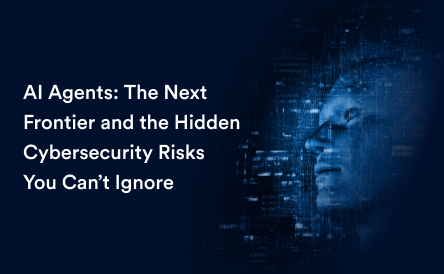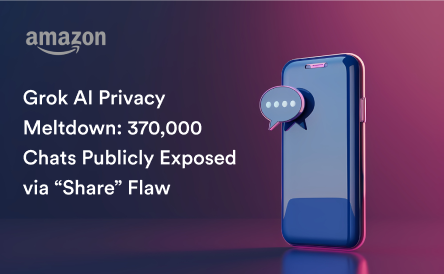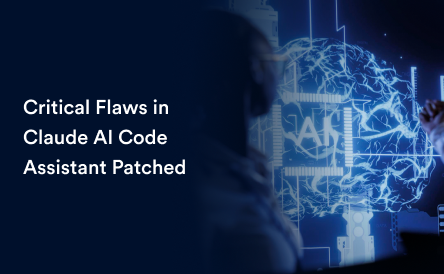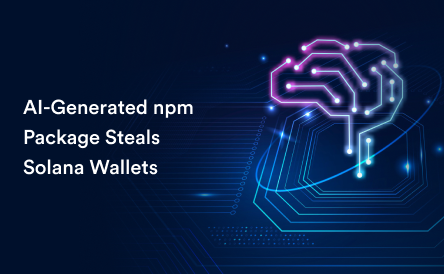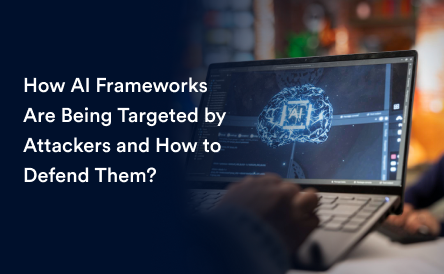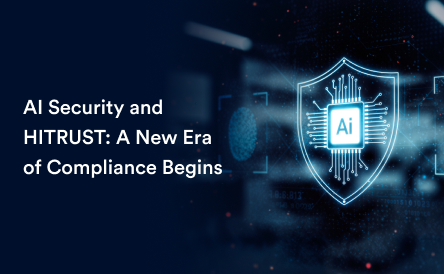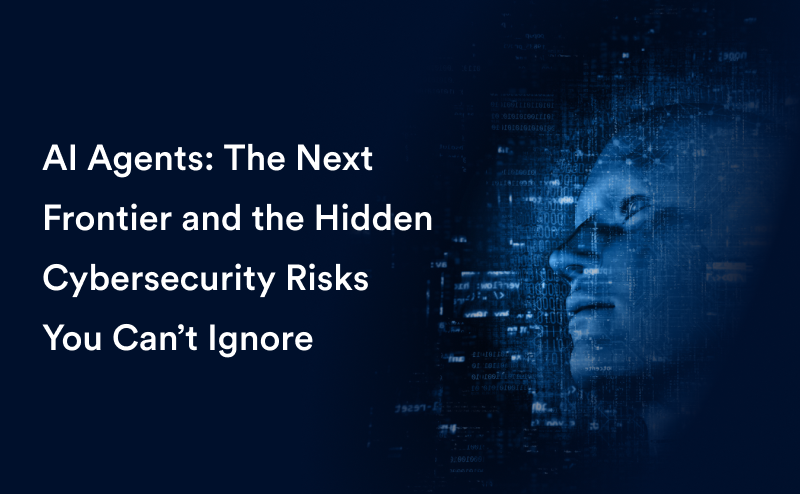
The AI Agent Revolution
AI agents are no longer just a buzzword — they are transforming how businesses automate workflows, serve customers, and manage data. From large language model–based virtual assistants to autonomous code-writing bots, AI agents promise to reduce costs, boost efficiency, and reshape entire industries.
Yet beneath this technological promise lies a stark reality: AI agents introduce significant cybersecurity risks that many organizations are unprepared to address. According to a report by Cybersecurity Ventures, cybercrime is expected to cost the world $10.5 trillion annually by 2025 [i]
This article explores what AI agents are, why they are gaining widespread adoption, the security risks they pose, and best practices for securing AI-powered workflows. It also discusses why engaging experienced cybersecurity firms is essential in this evolving landscape.
What Are AI Agents?
AI agents are autonomous or semi-autonomous systems that perform tasks on behalf of users. Unlike basic chatbots, modern AI agents can:
- Plan and execute multi-step tasks
- Access internal or external APIs
- Integrate with business systems such as CRMs and ticketing platforms
- Learn and adapt from user inputs and organizational data
These capabilities are built on technologies such as large language models (LLMs), reinforcement learning, and advanced natural language processing (NLP), making AI agents highly capable — but also vulnerable to new forms of attack.
Why AI Agents Are Booming
Organizations are embracing AI agents because they can:
- Reduce repetitive workloads
- Scale customer support through natural conversation
- Automate complex decision-making
- Provide 24/7 availability
This surge in adoption is driven by major platforms such as OpenAI’s GPT Agents, Microsoft’s Copilot, Google’s Gemini, and a range of industry-specific AI solutions. Gartner predicts that by 2025, 50% of organizations will have adopted AI agents in some form[ii].
However, in the rush to deploy these tools, many businesses overlook critical AI security and privacy risks. For instance, in 2023, a major financial institution experienced a data breach due to a compromised AI agent, resulting in the exposure of sensitive customer information[iii].
The Hidden Cybersecurity Risks of AI Agents
Data Leakage and Privacy Breaches
AI agents often ingest and process sensitive corporate data, including customer records, proprietary code, and financial information. Without proper controls, these systems may inadvertently leak sensitive data through logs, prompt histories, or integrations. A healthcare provider faced regulatory penalties after an AI agent inadvertently leaked patient records through unsecured integrations[iv].
- Prompt Injection Attacks: Attackers can craft malicious inputs designed to hijack an AI agent’s behavior. This can lead to the agent executing unintended commands, revealing confidential information, or producing manipulated outputs. A tech company discovered that its AI agent had been manipulated through prompt injection attacks, leading to unauthorized access to proprietary code[v].
- Unauthorized System Access: Many AI agents are designed to perform actions such as querying databases or initiating workflows. If access controls are weak, a compromised agent can become an entry point for threat actors seeking broader system access.
- Supply Chain Vulnerabilities: Organizations often depend on third-party AI models or APIs. A compromised provider can introduce malware, exfiltrate sensitive data, or undermine the security of the entire system.
- Model Poisoning and Data Integrity Risks: Attackers can manipulate training data to introduce subtle, malicious changes in agent behavior. This can undermine trust in AI outputs and introduce long-term security vulnerabilities.
Best Practices for Securing AI Agents
- Adopt Zero-Trust Architecture: Avoid granting AI agents blanket access. Enforce least-privilege principles.
- Implement Prompt Sanitization: Filter and validate user inputs to mitigate injection attacks.
- Maintain Rigorous Logging and Monitoring: Continuously monitor agent behavior for anomalies or suspicious activity.
- Encrypt Data: Secure sensitive information both in transit and at rest.
- Conduct Regular Security Assessments: Include penetration testing, red teaming, and threat modelling focused on AI workflows.
Why Cybersecurity for AI Agents Cannot Be an Afterthought
As AI agents become integral to business operations, their compromise can result in:
- Large-scale data breaches
- Financial losses
- Regulatory penalties (such as GDPR or India’s DPDP Act)
- Damage to brand reputation
Traditional cybersecurity measures alone are not enough. Organizations must evolve their security posture to account for the unique risks associated with AI agents, adopting a proactive approach that includes specialised testing and monitoring. A study by IBM found that the average cost of a data breach in 2023 was $4.45 million[vi].
Finstein: Your Partner for AI Cybersecurity and Beyond
At Finstein, widely regarded as a top cybersecurity services provider in India, the US, Singapore, the UAE, and the UK, we understand the complex opportunities and risks that come with AI adoption. As a trusted cybersecurity partner, we help organizations secure their AI systems through:
- AI Risk Assessments
- Penetration Testing and Red Teaming for AI Agents
- Prompt Injection Testing
- Data Privacy and Regulatory Compliance (GDPR, India’s DPDP Act, HIPAA, HITRUST)
- Secure AI System Design and Architecture
- Continuous Security Monitoring for AI Workflows
Our global team of cybersecurity consultants, AI security specialists, and compliance experts is committed to helping businesses innovate securely and confidently in an increasingly connected world.
Get in Touch with Finstein
Ready to secure your AI agents and future-proof your business?
Website: https://cyber.finstein.ai
Email: Praveen@Finstein.ai
Contact: +91 99400 16037
Sources
[i] https://cybersecurityventures.com/cybercrime-damage-costs-10-trillion-by-2025
[iii] https://www.financialtimes.com/2023/03/15/financial-institution-data-breach-ai-agent
[iv] https://www.healthcareitnews.com/news/healthcare-provider-faces-penalties-ai-agent-data-leak
[v] https://www.techcrunch.com/2023/04/10/tech-company-ai-agent-prompt-injection-attack
[vi] https://www.ibm.com/security/data-breach](https://www.ibm.com/security/data-breach

